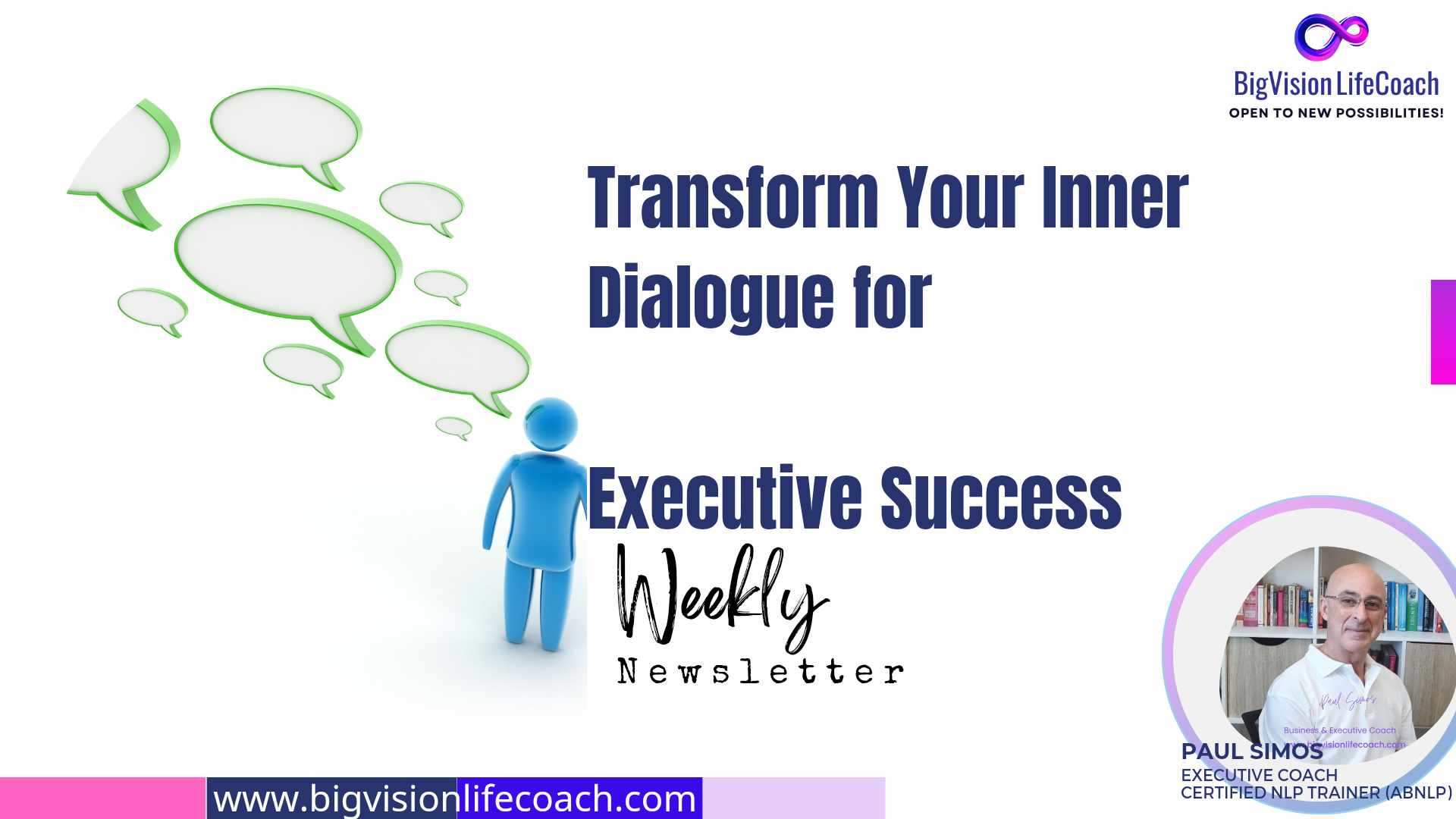 Why Do Top Level, Successful Executives Need a Coach?
Why Do Top Level, Successful Executives Need a Coach?
To be perfectly honest with you, if you really want to get technical, nobody NEEDS a coach! Top-level, successful executives are no exception.
Everyone is running their professional or personal lives to the best of their ability and still achieving a certain level of results and success. Most people reach their goal/s, in most cases, and attain the end results they desire.
So, why do top-level executives need a coach?
They don’t! Unless you are a high achiever, have a passion to learn and excel, want to increase your results, and grow your team and business to an outstanding level.
We could list many reasons why top-level, successful executives could benefit from having a coach to maximize their results and experience during their tenure.
In this article, I would like to focus on 3 reasons that come directly from the successful executives I have been working with over the past number of years. These are 3 reasons that our clients and myself have noted and experienced through the coaching journey with real measurable results.
3 Reasons Top Level, Successful Executives Could Benefit By Having A Coach & Coaching Experience.
Reason No 1
Accelerate performance as a leader: When you are on the front line as a successful executive in a fast-changing, sometimes very volatile, environment, it’s not always easy to sustain and or improve your performance.
You have many short and long-term decisions to make on a daily basis.
You are under the pump constantly which can affect your performance if it’s not managed.
My job as a coach is not to give my clients answers to their challenges and problems. Yes, I can offer ideas and suggestions, but at the end of the day, the client has all the answers within.
It’s my job to get him into an “Empowering State of Mind” so he can draw down on all his life experiences, memories, skills, and capabilities, to make the best decision to move forward in an industry he is very familiar with and knows best. We use the very powerful Logical Levels System.
When he is in BETA (strongly engaged mind) for an extended period of time, he dumbs down his ability to use the logical/creative / problem-solving part of his brain.
It’s my job to get him back into THETA (a very deep, relaxed, state of mind) so he is able to easily access the correct solution, based on his own knowledge, experience, logic, and creative part of his brain.
This is the feedback from our clients on how a successful executive can accelerate his performance as a leader.
Reason No 2
Confidential, unbias, sounding board: When your head is full of ideas, problems, and challenges, it can feel like a heavy weight and confusing in which you can’t make any sense, you need to talk it out.
You must be careful with whom you share and entrust with this information.
Not all relationships are equal in the fact that we can share everything that’s on our minds. We all have unconscious biases so we need to be vigilant with what we share and with whom.
The successful executive needs to uphold his confidence, posture, and focus, in front of his team and subordinates.
The successful executive can benefit a lot from an unbias coaching conversation (sounding board) with an external coach and download all his thoughts and concerns without prejudice or losing confidence with his team.
He needs to be living in the eye of the storm in front of his board of directors, colleagues, and employees.
The external coach will have one mission and objective to ensure his executive client makes the best decision for himself, the company, and everyone involved, creating a win/win outcome.
The successful executive can be confident in the fact that in such a safe, unbiased coaching environment he will come up with the best solution, clear his head, crystalize his thought, release stress, and be empowered to move forward.
Reason No 3
Strategic planning: Now that the successful executive has slowed his mind down (THETA), it’s given him access to his CEO part of the brain. He now can use logic, creativity, experience, memory, skills, and capabilities, and has cleared his head, de-stressed his mind, clarified his thoughts, and it’s time to make a plan on the best way to move forward.
The coach will continue to support (brainstorming) the successful executive while he strategically designs a clear path towards his ongoing goal.
Once he is empowered and confident with his action steps and plans for the next 7 days, he enthusiastically completes the coaching conversation until the following week.
Summary:
The successful executive is intelligent, smart, driven, and uses executive coaching as an opportunity to get himself back into an “Empowering State of Mind”.
In this “Empowering State of Mind”, He has access to all his skills, capabilities, talent, life experience, memory, and industry knowledge.
It’s in this “State of Mind” that he can be an inspiration, leader, and results-driven, while at the same time, enjoying the daily journey.
If you are a successful executive and would like to learn more about how coaching can be of benefit to you in your specific circumstances, Schedule a Free Strategy Session, and discuss your options….
Paul Simos is an accomplished Executive Life Coach, Health Coach & Certified Trainer.
He has a fundamental belief about his clients which frames how they work together i.e. they already have everything they need to achieve success. His role as a coach is to stimulate and challenge his clients to unlock their successful beliefs, skills, and behavior patterns.
Free Masterclass Training, How To Get More Successful Outcomes In Your Professional & Personal Relationships… By Saying “NO” (The Right Way)…






